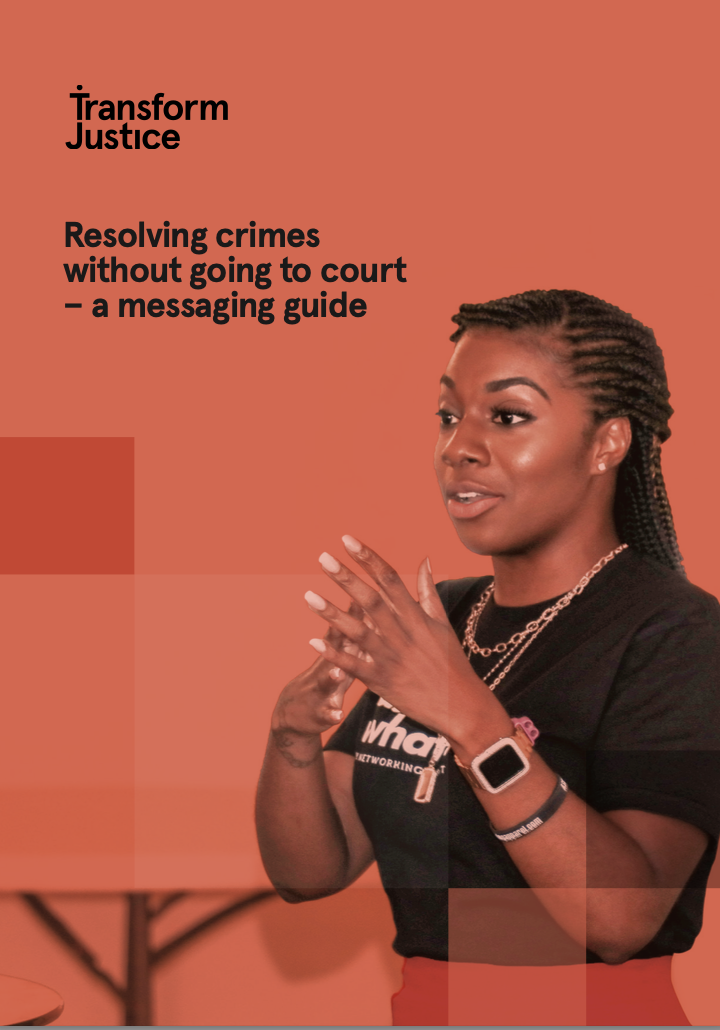
There is a raft of ways to deal with crimes without sending people to court, using what experts broadly refer to as “diversion” and “out of court disposals”.
These lower gears of the justice system have proved effective in reducing reoffending, and in addressing the needs of victims.1 But they rarely get a look-in in public conversations about how to deal with crime, which focus heavily on the system’s highest gears - prosecution and prison.
The good news is that the public are broadly supportive of resolving crimes without going to court. 58% of survey respondents supported policies to resolve more crimes without going to court, compared to only 17% who oppose. A majority think that such options are a sensible response to crime, a good use of police resources, and are likely to help people who commit crime make positive change in their lives. But that support can go up or down depending on the language we use.
This guide summarises how to communicate about resolving crimes without going to court in a way that leads to public support and acceptance. It is written for anyone writing or speaking
about resolving crime without going to court, including charities, police, and police and crime commissioners.
The findings are based on focus groups and a nationally representative survey of the public commissioned by Transform Justice and funded by Lloyds Bank Foundation, as well as earlier research2 done by the FrameWorks Institute on behalf of Transform Justice, the Criminal Justice Alliance, Clinks and the Standing Committee for Youth Justice.